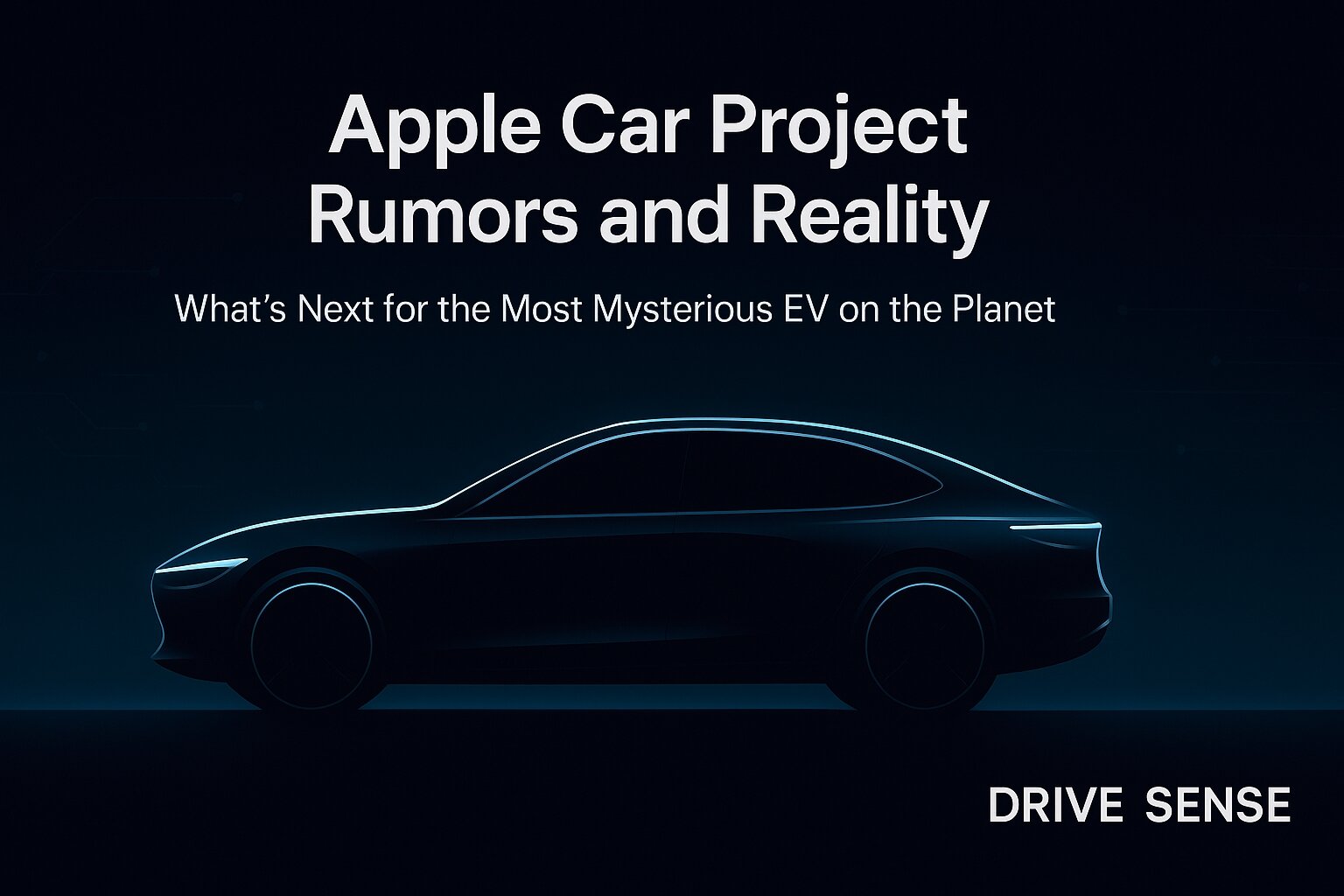The Apple Car: Fact, Fiction, or Something in Between?
For nearly a decade, the Apple Car has been more of an enigma than a confirmed automotive project. The idea of Silicon Valley’s most valuable company rolling out its own vehicle—perhaps with the kind of minimalist polish seen in an iPhone—has stirred up equal parts hope and skepticism. As someone who spends a lot of time test-driving EVs and chasing down auto industry sources, I can say the Apple Car rumors have become almost a fixture at New York auto shows. You hear them over the clatter of espresso cups and the low hum of EV chargers.
Whispers, Patents, and Parking Lot Sightings
Let’s stick to the facts. Apple’s automotive project, internally called “Project Titan,” began around 2014. The company hired hundreds of engineers and designers from Tesla, Ford, and GM—names with real weight in Detroit and Silicon Valley alike. But hard details? They’re scarce. No official model names, no public prototypes, no specs on range or horsepower. Every so often, patent filings surface: self-driving tech here, battery architecture there. It’s not much to go on—more like puzzle pieces scattered across Cupertino parking lots than a clear roadmap.
Reality Check: What We Actually Know
What is certain: Apple has never publicly committed to building a car for consumers. Tim Cook confirmed work on autonomous systems back in 2017, but that’s about as clear as it gets. The company has reportedly partnered with Hyundai-Kia (in 2021) and later with other suppliers—but all talks fizzled or moved behind tighter NDAs. If you’re hoping for specs like a Lucid Air’s 500+ mile range or Tesla Plaid’s sub-2 second sprint, you’ll have to keep waiting. No pricing talk, no production timelines—nothing concrete on competitors beyond speculation.
The EV Landscape: Crowded Highways and Unanswered Questions
The EV market isn’t getting any quieter. Rivals like Tesla, Ford (with the F-150 Lightning), Hyundai’s Ioniq line, and startups like Rivian are fighting for every kilowatt-hour of attention. Consumer demand is growing fast—especially here in New York where charging infrastructure is finally catching up—but so are expectations for seamless tech integration and government incentives tied to U.S. manufacturing. If Apple enters this race, it’ll be stepping into a crowded field that moves at breakneck speed.
Regulatory Realities and Industry Impact
Government policy could be both an obstacle and an opportunity for Apple. The Biden administration’s push for EV adoption—tax credits, emissions standards—has shifted automaker priorities nationwide. Any vehicle from Apple would need to hit tough regulatory marks right out of the gate. And then there’s data privacy: Apple’s reputation for user security would face fresh scrutiny if it steers into autonomous vehicles loaded with sensors.
The Human Side: Hype vs. Hope
There’s something oddly satisfying about this waiting game—the anticipation when you hear rumors of camouflaged test mules or see a cryptic job posting from Apple’s mobility team pop up on LinkedIn. At the same time, there’s mild annoyance among industry insiders at how little is concrete after all these years. Until we see sheet metal—or at least a logo on an EPA filing—the Apple Car remains just out of reach.
